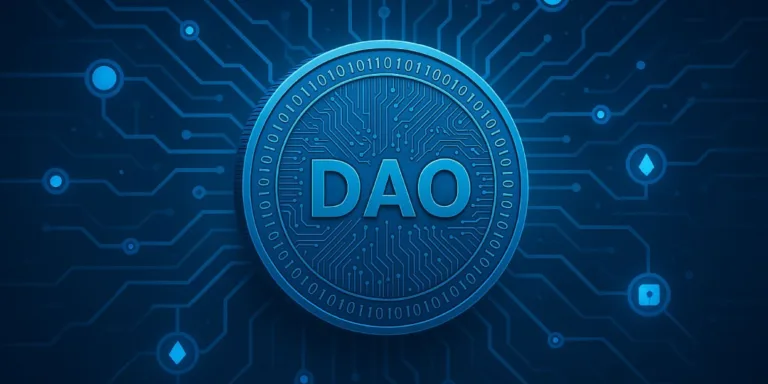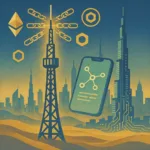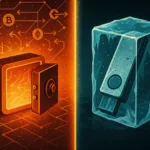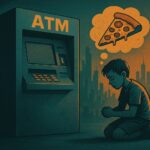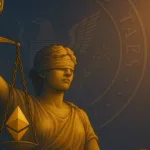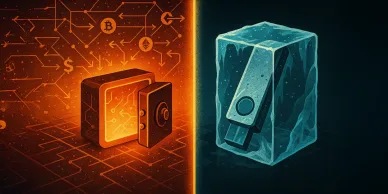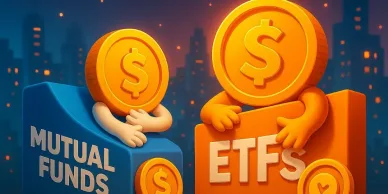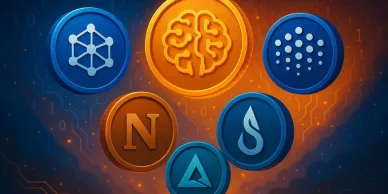Imagine a global community running like a company but with no CEO, no headquarters, and every major decision made by member votes on a shared digital ledger. This is a Decentralized Autonomous Organization (DAO). Rules are baked into code, so power stays with the group: no one person can override collective choices.
So, what is a DAO?
It’s people collaborating through self-enforcing digital agreements. These tools manage shared money, uphold rules, and automatically act on voted decisions. The process stays simple: members suggest ideas, the group votes, and technology handles the rest, cutting out middlemen while keeping teamwork transparent.
How a DAO works: The core components
| Building block | What it does |
| Smart contracts | Hold the treasury, record proposals, tally votes, and enforce rules on-chain. |
| Governance tokens | Give members voting power, usually proportional to holdings or delegated stake. |
| Proposals & voting | Anyone who meets the token or reputation thresholds can submit a proposal; the DAO’s contract executes outcomes once quorum and majority conditions are met. |
| Treasury | Ether, stablecoins, or other tokens owned by the DAO contract itself. |
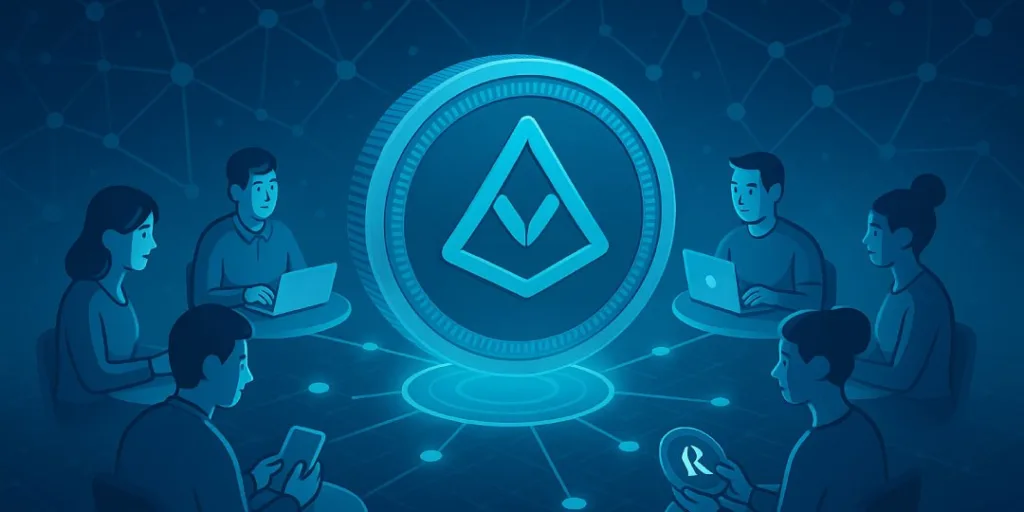
Popular DAO types and real examples
- Protocol DAOs
- Purpose: Run DeFi platforms or blockchain infrastructure.
- Example: Uniswap DAO – Governs a $4 billion decentralized exchange. Members vote on fee changes & legal strategy.
- Why it matters: Keeps massive financial tools owned and controlled by their users, not a corporation.
- Investment/treasury DAOs
- Purpose: Pool funds to invest or buy assets (digital or real-world).
- Example: Nouns DAO – Auctions one unique NFT daily, using the funds to support art, tech, and community projects worldwide.
- Why it matters: Experiments with communities collectively owning cultural ideas and funding public goods.
- Collector/philanthropy DAOs
- Purpose: Acquire valuable items (like NFTs) or support charitable causes.
- Example: UkraineDAO—Raised $7 million for war relief efforts in 2022 and continues its mission.
- Why it matters: Shows how quickly and effectively crypto communities can mobilize global support for urgent needs.
- Service/Work DAOs
- Purpose: Organize contributors to build products or offer services.
- Example: Gitcoin DAO – Funds open-source software development using fair voting systems.
- Why it matters: Acts like an “open-source foundation, but on-chain”—transparently supporting essential digital infrastructure.
Why DAOs matter:
Benefits
- Global participation
- Transparent decisions
- Automated payments
Common challenges:
- Security: Flawed code can risk funds (audits are critical).
- Fair Voting: Avoiding “whale rule” (solution: vote delegation).
- Regulations: Governments are catching up (e.g., Wyoming’s “DAO LLC” law).
The real takeaway: People power, enabled by tech
Now, to answer the question, what is a DAO? It’s simply people everywhere organizing fairly, using shared rules and blockchain tools to collaborate, fund ideas, and make decisions together. It’s a digital co-op: transparent, global, and driven by collective action.
Yes, challenges exist. Voting can get messy, security requires vigilance, and regulations are evolving. But the potential is real: DAOs help communities coordinate at scale with unprecedented trust.



